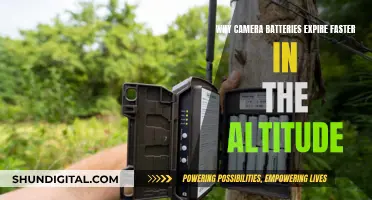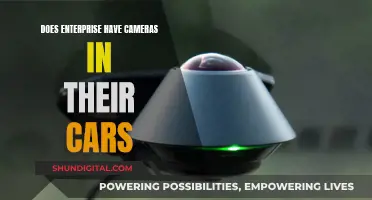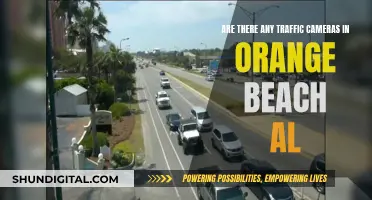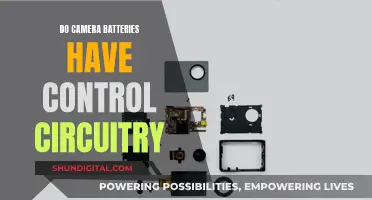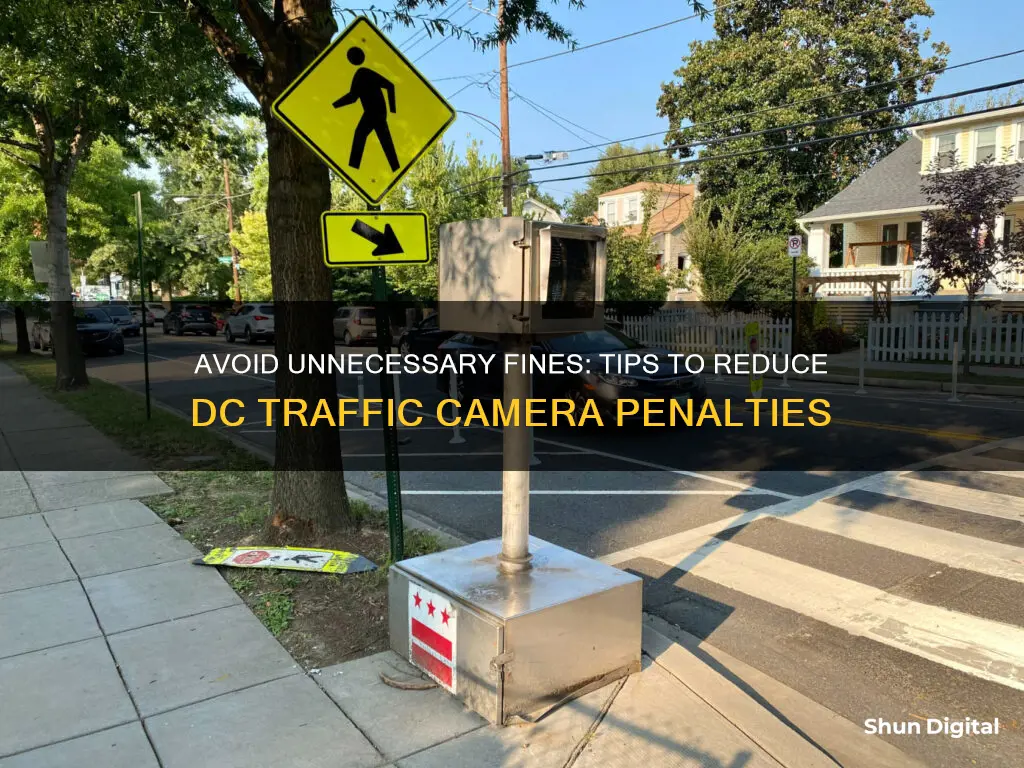
Traffic cameras are an increasingly common feature of modern life, but what happens when you receive a fine from one? In Washington, DC, traffic cameras are used to enforce speed limits and monitor red lights and stop signs. If you receive a fine, you must either pay it or contest it. Fines can be paid online, by mail, in person, or by phone. If you want to dispute a ticket, you can plead not guilty by mail or online, or in some cases, you may need to appear in traffic court. It's important to act quickly, as you usually only have 30 days to dispute a ticket. When contesting a ticket, you can argue that the prosecution cannot prove you were driving, or provide evidence that you were making a legal maneuver like a right turn on red. Understanding your rights and the applicable laws is crucial when dealing with traffic camera fines.
| Characteristics | Values |
|---|---|
| Purpose | To reduce the number of accidents and injuries associated with speeding, as well as to ensure certain areas, such as school zones, are safe to walk through |
| Mechanism | Speed cameras use radar to detect speeding vehicles and take a photograph of the rear of the vehicle, including the license plate. |
| Ticket Process | A notice of infraction is mailed to the registered owner of the vehicle. The owner must either pay the fine or request a DMV administrative hearing to contest the ticket. |
| Fine Amount | Up to $250, depending on how much the posted speed limit was exceeded |
| Contesting a Ticket | Individuals can request a DMV administrative hearing to prove their innocence and contest the ticket. They may also submit a Motion for Reconsideration within 30 days of the hearing examiner's decision if they are unhappy with it. |
| Exemptions | Exemptions include if the vehicle or license plate was stolen, or if the vehicle was part of a funeral procession, avoiding an emergency vehicle, or directed by a police officer. |
What You'll Learn

Plead not guilty by writing to the traffic court
If you want to fight a traffic ticket in DC, you may have the option of writing a letter to the court pleading not guilty. Here is a step-by-step guide on how to do this:
Step 1: Read Your Ticket Carefully
Your traffic ticket will include important information about your procedural rights and how to respond to the ticket. Check the court's website or call the clerk's office for additional information about pleading not guilty.
Step 2: Gather Information About the Incident
Review any photos or witness statements related to the incident that led to the traffic citation. Assess the strength of your defense and the likelihood of winning your case before deciding to plead not guilty. Avoid pleading not guilty just for the sake of fighting the ticket, as it will only incur additional time and costs.
Step 3: Decide How to Plead
Consider the costs of pleading not guilty and review your driving record to determine if it would be more straightforward to pay the ticket. If the ticket is your first offense, you may be able to attend traffic school to have the infraction removed from your record.
Step 4: Take Note of the Deadline
Your ticket will typically include a deadline for entering your plea if you intend to plead not guilty. Figure out if the date on your ticket is for responding or appearing in traffic court. The first date is likely an arraignment, but this varies by jurisdiction.
Step 5: Find Out if There's a Required Form
Many jurisdictions require you to fill out a form to notify the traffic court of your plea. This form may be included with your ticket or available on the traffic court's website or from the clerk's office. In some cases, you may need to send a check for the fine amount as bail when pleading not guilty, which will be returned if you win your case.
Step 6: Draft Your Letter
If no specific form is available, you may be able to plead not guilty by writing a letter to the court. Include a statement indicating that you understand your right to an arraignment and are waiving it. You can simply state that you plead not guilty, without explaining your defenses. Use a standard business format and legible font, single-spacing the letter with double-spacing between paragraphs. Provide accurate contact information.
Step 7: Include All Required Information
At a minimum, include the date of the traffic ticket, the infraction, and any case or reference number. Provide your full name and address as listed on the ticket, even if they are incorrect or outdated. You may also attach a copy of the front and back of the citation.
Step 8: Consider Consulting an Attorney
Depending on the seriousness of the offense, you may want to discuss your plea with a traffic attorney. This is especially important if you received the ticket due to your involvement in an accident, as your decision may affect your civil liability for damages incurred by other drivers.
Step 9: Submit Your Letter
Make a copy of your letter and any attachments for your records before submitting them to the traffic court. Send your letter to the court's mailing address, which you can find on your traffic ticket or by contacting the clerk of court. Consider using certified mail with a returned receipt to ensure you have proof of the court receiving your letter.
Choosing the Right Car Camera: Key Considerations
You may want to see also

Request a formal hearing
If you want to contest a ticket, do not pay the fine or penalty. You cannot contest a ticket once you have paid the fine and/or penalty, nor can you request a refund.
To request a formal hearing, you must submit a hearing request form to the DC DMV Adjudication Services. You can contest tickets online or by mail. To avoid additional penalties, your request must be received by the DC DMV within 30 calendar days. They will send you a postcard to indicate that they have received your request.
If you choose to contest tickets by mail, send your statement or adjudication form to:
> Hearing Request Form
> DC DMV Adjudication Services
> ATTN: Schedule Hearing
> PO Box 37135
> Washington, DC 20013
If you choose to contest tickets online, you will be able to select a date and time that is convenient for you. When selecting your hearing, you will have the option to choose to appear in person or remotely for a virtual hearing.
On the day of your virtual hearing, ensure you have a fast and stable internet connection, a video device, a microphone, a valid email address, and allow application/plugin installation for Cisco Webex Meetings. You may log in 15 minutes before your hearing but no later than 10 minutes after your scheduled appointment time. If you log in more than 10 minutes after your appointment time, you will not be able to participate in the hearing.
Concealing Car Number Plates: Evading the Camera's Eye
You may want to see also

Research the law to build a legal defence
If you want to dispute a traffic camera ticket in DC, it's important to understand the relevant laws and regulations. Here are some key points to consider as you research the law to build your legal defence:
Automated Traffic Enforcement Laws:
The District of Columbia has implemented an automated photo enforcement program to reduce traffic violations and improve road safety. The relevant law can be found in the DC Code: Division VIII, Title 50, Subtitle VII, Chapter 22, Subchapter 5. This program uses cameras to capture and record traffic violations, including relevant data, images, and videos. The registered owner of the vehicle receives the citation and is responsible for paying the fine, even if they were not driving.
Speeding Violations:
Speed cameras in DC use radar to detect vehicles exceeding the speed limit. The camera captures a photograph of the vehicle's rear and license plate, and the owner is then sent a notice of the speeding infraction. The potential penalty for speeding is a fine of up to $250, depending on how much the driver exceeded the speed limit. DC Municipal Regulation 18-2200 states that no person shall drive a vehicle in DC above the posted speed limit.
Red Light Violations:
Red light cameras are also part of the automated photo enforcement program. These cameras capture the license plates of vehicles that violate red light regulations but do not capture the individual driving. DC Municipal Regulation 18 Section 2103 states that a vehicle facing a red light must stop before entering the intersection and may turn right on red after stopping, if safe to do so. A violation of these regulations results in a $150 fine and two points on the driver's record.
Defences and Strategies:
When researching the law to build your defence, consider the following strategies:
- Review the photographs and videos associated with your citation. Ensure that your vehicle is clearly identifiable, and confirm that the date, time, and location match the details in your citation.
- Understand the specific code sections you are cited for violating, and verify that the penalties match those listed in the code.
- Research cases in your area regarding traffic cameras. Look for appellate court decisions on the legality of traffic camera tickets.
- Familiarize yourself with defences recognized by law. For example, some states have specific rules about warning sign placement for traffic cameras, or they may recognize a necessity defence for speeding.
- If you were not driving the vehicle when the violation occurred, confirm that your state does not treat red-light camera tickets as parking violations, which hold the registered owner liable.
- If you were making a legal manoeuvre, such as a right turn on a red light, you may be able to get the ticket dismissed.
- Challenge the admissibility of the photograph as hearsay or dispute its authenticity if no one from the maintaining company testifies in court.
- Assert your right to confront witnesses, as guaranteed by the Sixth Amendment of the Constitution.
Obtaining Houston Traffic Camera Footage: A Guide
You may want to see also

Prove your innocence by contesting the ticket
If you believe that a ticket was issued to you wrongly, you can contest it and request a dismissal. However, do not pay the fine and/or penalty if you want to contest a ticket. Once a ticket is paid, you are no longer able to contest it.
To contest a ticket, submit all the information and documentation that supports your reasons for contesting to the DC DMV. You can do this virtually, by mail, or in person.
If you contest a ticket virtually or by mail, submit your statement, defence to the ticket, and any evidence for the defence that you want the hearing examiner to consider. A DC DMV hearing examiner will read the information you submit and decide whether you must pay the fine and any penalty, or if the ticket should be reduced or dismissed based on DC Code and traffic regulations. The hearing examiner will mail the decision to the vehicle owner’s address of record with the DMV.
If you contest a ticket in person, you must visit the Adjudication Service Center for a walk-in hearing. To contest a ticket, you must be the registered owner of the vehicle and present the vehicle registration, or the owner must authorize someone to act on their behalf by completing and signing the power of attorney form. If you are contesting a ticket issued to a rental car, you must provide the rental agreement for the vehicle showing the rental period matching the date of issuance for the ticket.
Unlocking Note 9 Camera Modes: Program Mode Included?
You may want to see also

Request an administrative hearing
If you want to contest a ticket, do not pay the fine. You cannot contest a ticket once you have paid the fine, nor can you request a refund. To contest a ticket, you must be the registered owner of the vehicle and present the vehicle registration. Alternatively, the owner must authorize someone to act on their behalf by completing and signing a power of attorney form.
To request an administrative hearing, you can contest tickets virtually, by mail, or in person. If you are contesting by mail, the DC DMV will send you a postcard to indicate that they have received your request. To avoid additional penalties, the DC DMV must receive your request within 30 calendar days. If you don't receive this postcard, you may contact the DC DMV or call DC 311 to confirm receipt of your request.
If you are contesting in person, you must visit the Adjudication Service Center for a walk-in hearing. If you are contesting a ticket issued to a rental car, you must provide the rental agreement for the vehicle, showing the rental period matching the date of issuance for the ticket.
When contesting a ticket, you must submit your statement, your defence, and any evidence for the defence that you want the hearing examiner to consider. The examiner will then decide whether you must pay the fine, or they will reduce or dismiss the ticket based on DC Code and traffic regulations.
Upgrading Camera Raw: A Quick Guide to the Latest Version
You may want to see also
Frequently asked questions
You can dispute a traffic camera ticket by pleading not guilty and requesting a DMV administrative hearing. You must be able to prove your innocence, for example, by demonstrating that your vehicle was stolen at the time of the incident.
The fines for traffic violations in DC are the same as those for violations issued by a police officer. The potential penalty for speeding is a fine of up to $250, depending on how much over the speed limit the driver was travelling.
The purpose of speed cameras in DC is to reduce the number of accidents and injuries associated with speeding, as well as to ensure certain areas, such as school zones, are safe.


